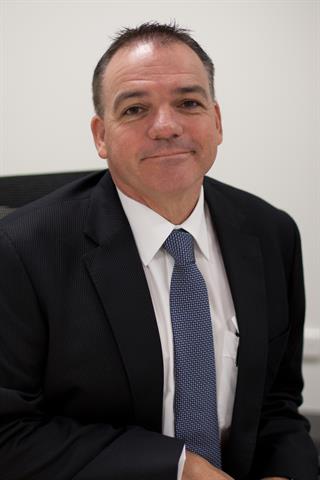 Carl Smith |
Carl Smith is Managing Director of Linde Material Handling Equipment Australia.
By the time he joined Linde Material Handling Equipment Australia in 2004, Carl Smith had amassed a wealth of sales, marketing and senior management experience in Australia's transport and logistics industry.
Aware of Linde's popularity with users and the market's respect for Linde's technological leadership, Carl has spent his time since then enhancing every other aspect of the company's market offer to match those premium expectations. The outcome has seen a doubling of Linde's market share and a major boost in key areas including, used equipment sales, short term rentals parts, service and fleet management support.
I've watched the current situation develop over a number of years and, frankly, I'm concerned about what the future holds for suppliers and their customers.
On the equipment and technology side, the outlook has never been brighter. My concern, however, is that the fierce level of shortsighted price setting is driving quality out of the industry.
The unrelenting push for marketshare above all else is seeing business written at levels which makes it unsustainable. The sad fact is that we are doing it to ourselves. The industry initiated this situation, not our customers.
I think we have to ask ourselves: Is this ultimately in their best interests?
In my 33 years in the industry, this is the most troubling trend I've seen emerge.
Why are we lessening the value of what we do? There is now a customer expectation that despite incredible MHE design improvements in technology and safety, new fleet purchases should cost less than five years ago.
At Linde, we think it is more important to provide our customers with equipment at pricing which ensures we can continue to support them long after the sale.
I've seen this industry decline from being largely viewed as professional, credible and providing partnerships and solutions which help customers achieve their business objectives.
I don't think that is true now. It is seen as representing just a commodity and a price and that's not driven by the customers, but by our own industry.
Our response has been to ensure we can meet all of our customers' needs, including price competitiveness.
We have won business on the back of competitors not performing in the service support area; however, we still continue to experience the tendency of suppliers continuing to make the same commitments and letting the end-user down that inevitably leads to the reputation of the entire industry suffering.
In the face of this apparent uneconomic pricing by loss-making competitors with deep pockets, our future direction at Linde is clear.
We will never change from our mantra that superior productivity, technology, whole of life costs, safety and maximum uptime provide the best value proposition. That is what it is all about for us.
If we don't as an industry put some value on what we do, then why should the customer? We need to get some credibility back by being brave enough to say to customers there is a value about what we offer beyond a simple price.
People recognise what you can do, what you can bring to their business. It can't always be about beating a price by whatever it takes, because that leads inevitably downwards for the quality of all the after-sales elements.
It is not becoming harder to explain how you can add value for a customer's business, but because of what the industry is doing to itself, it is definitely harder to convince customers to pay a fair price for that.
I prefer Linde to focus beyond the whatever-it-takes pricing environment to the broader whatever -it-takes attitude to achieving customer satisfaction. I am convinced that approach can be a win-win one for customers and suppliers.
In any market where you can win a contract and never miss a beat with the equipment or its support, you must be adding value.
Our equipment has service intervals twice or even four times as long as the competition's, so how do they source and provide the technicians to service what they sell in such a chaotic market?
You can't sustain that, so ultimately the customer suffers. It is the end-user who pays for that.
When your uptime is not as good as it should be, when your operators are not as fresh at the end of the day as they were at the beginning, when they are not as productive, when the truck breaks down - what is that costing you?
In the current pursuit of marketshare by some suppliers, we are not creating sales people, we are just creating order-takers and destroying the industry's credibility.
Despite this situation, I still see plenty of room for optimism.
We have something special in this industry. It's more than just moving a pallet from A to B. All of our competitors have something which makes them unique. Their equipment all offers value to the customer. We're just not selling it.